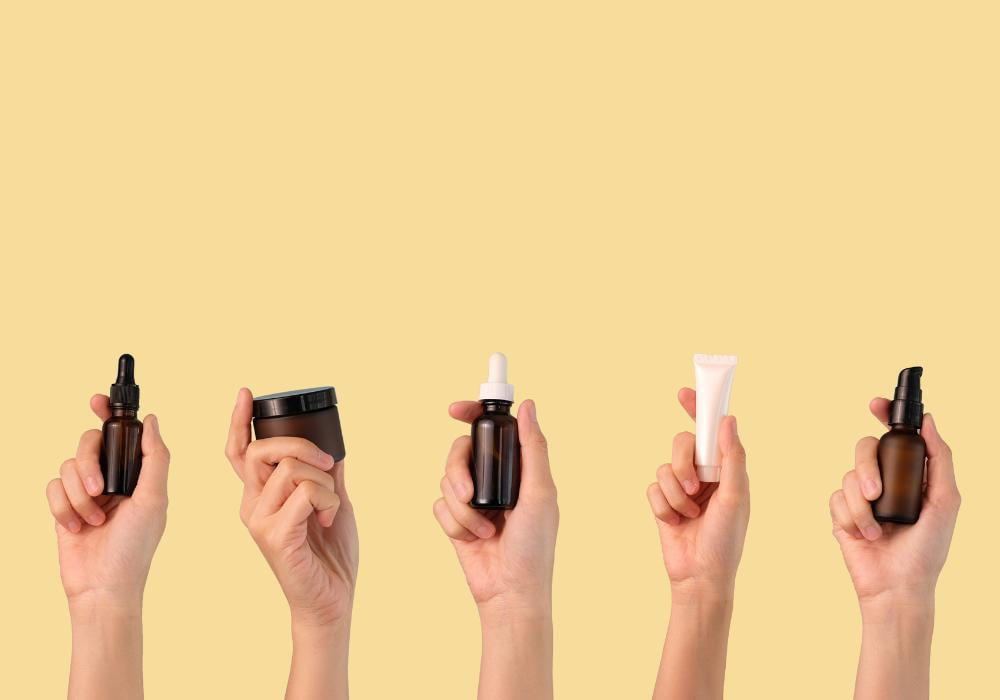Skincare can feel like a guessing game—especially when you’re staring at a shelf full of cleansers, serums, and creams with names you can’t pronounce. With so many options, how do you know what actually works for your skin?
The truth is, there’s no single “best” product. The secret lies in understanding your skin and choosing what complements it—not what’s trending.
Disclaimer: This article is for educational purposes only and is not a substitute for medical advice. Please consult a dermatologist before starting new skincare treatments, especially if you have pre-existing skin conditions or sensitivities.
Start with Your Skin, Not the Shelf
When I first took skincare seriously, I didn’t head straight to product reviews or influencer posts. I looked in the mirror. My cheeks were dry and tight, but my forehead was shiny by lunchtime. That told me I had combination skin—and trying to use one-size-fits-all products only made things worse.
Understanding your skin type is step one—and it’s non-negotiable.
How to Identify Your Skin Type
After cleansing your face and leaving it bare for 30–60 minutes:
- Shiny all over = Oily skin
- Tight or flaky = Dry skin
- Oily T-zone, dry cheeks = Combination
- Red, itchy, or burning easily = Sensitive
- None of the above? You likely have normal skin (lucky you!)
What to Look for Based on Your Skin Type
1. Oily Skin
If you’re dealing with frequent shine and breakouts, choose:
- Gel-based cleansers with salicylic acid
- Lightweight, oil-free moisturisers
- Non-comedogenic labels (won’t clog pores)
Avoid: Coconut oil, petrolatum, and rich creams.
2. Dry Skin
Dryness isn’t just a lack of water—it’s often a compromised skin barrier. Reach for:
- Creamy, non-foaming cleansers
- Moisturisers with hyaluronic acid, glycerin, and ceramides
- Occlusives like squalane to seal in moisture
Avoid: Alcohol-heavy toners, clay masks, and exfoliants used too frequently.
3. Combination Skin
You don’t need two routines—you just need balance.
- Use gentle cleansers that don’t strip your skin
- Apply hydrating serums all over, and spot-treat oily areas with light mattifying products
- Layer moisturisers if needed (lighter for T-zone, richer for cheeks)
4. Sensitive Skin
Stick with minimal-ingredient formulas:
- Fragrance-free everything
- Calming ingredients like aloe vera, colloidal oatmeal, and panthenol
- Patch test without fail
Avoid: Essential oils, scrubs, and acids (unless advised by a dermatologist).
Ingredients That Make a Difference
Let’s cut through the marketing noise. Here are tried-and-tested ingredients you can rely on—if chosen based on your needs.
Hyaluronic Acid
A moisture magnet found naturally in your skin. Look for sodium hyaluronate, the form that penetrates best.
Vitamin C
Brightens skin and reduces dark spots. Works well under sunscreen in the morning. For beginners, start with 10% concentration or a stabilised form like magnesium ascorbyl phosphate.
Niacinamide
A personal favourite—it helped reduce the blotchy redness on my cheeks and balanced oil over time. Ideal for sensitive, oily, and acne-prone skin.
Retinoids (Retinol, Retinaldehyde)
Amazing for smoothing fine lines and improving texture—but they require patience. Introduce slowly and always pair with SPF.
AHAs & BHAs
- AHAs like glycolic acid exfoliate surface cells
- BHAs like salicylic acid go deeper into pores
Use them 1–2 times a week if you’re new to acids. Overuse leads to irritation—a lesson I learned the hard way.
Don’t Ignore What’s Not on the Label
A great product isn’t just about what’s in it—but also what’s not.
- Avoid alcohol denat, especially in toners (it can strip your skin)
- Say no to added fragrances or dyes, particularly if your skin is reactive
- Check expiry dates—actives like vitamin C can degrade quickly
What Most People Forget: Patch Testing
Before applying a new product to your entire face:
- Dab a small amount on your inner forearm or behind your ear
- Wait 24–48 hours
- Watch for redness, itching, or bumps
Trust me—it’s better than waking up with a face full of irritation.
Consistency Beats Complication
If there’s one skincare lesson that matters, it’s this: you don’t need 10 products—you need 3 good ones you use daily.
Here’s a no-fail starter routine:
- Cleanser – Gentle, suitable for your skin type
- Moisturiser – To maintain hydration and support the skin barrier
- Sunscreen (AM) – SPF 30+ every single day, even indoors
From there, you can add treatments like vitamin C (AM) or retinol (PM), but only once your basics are in place.
How to Choose Products Without Falling for Hype
✅ Read the Full Ingredients List
Active ingredients should be near the top. Avoid long lists packed with unknown chemicals or fragrances.
✅ Stick to One New Product at a Time
If irritation happens, you’ll know the cause. Plus, your skin needs time to adjust.
✅ Don’t Assume Expensive = Better
Some of the best moisturisers are under £15. Focus on formulation, not branding.
✅ Buy From Reputable Retailers
If referencing a brand or store:
- Use editorial tone: “Some curated stores let you filter skincare by skin concern or ingredient preferences.”
- If linking, tag with
rel="nofollow"unless sponsored.
You can explore a selection of ingredient-focused products from retailers like this one.
My Skincare Journey in Three Products
I started my journey with:
- A gentle gel cleanser (no fragrance)
- A basic hyaluronic acid serum
- A moisturiser with niacinamide
What helped most wasn’t the brand—it was the fact that I used them every day, didn’t overload my skin, and gave it time. Within six weeks, my texture improved and redness faded. No overnight miracle—just consistency.
Conclusion
Choosing the right skincare products isn’t about chasing trends—it’s about learning what your skin needs and responding with intention. Whether you’re oily, dry, or somewhere in between, you don’t need a shelf full of products. You need the right few.
Pay attention to your ingredients, test before you commit, and remember: your skin tells you what it needs—you just have to listen.

